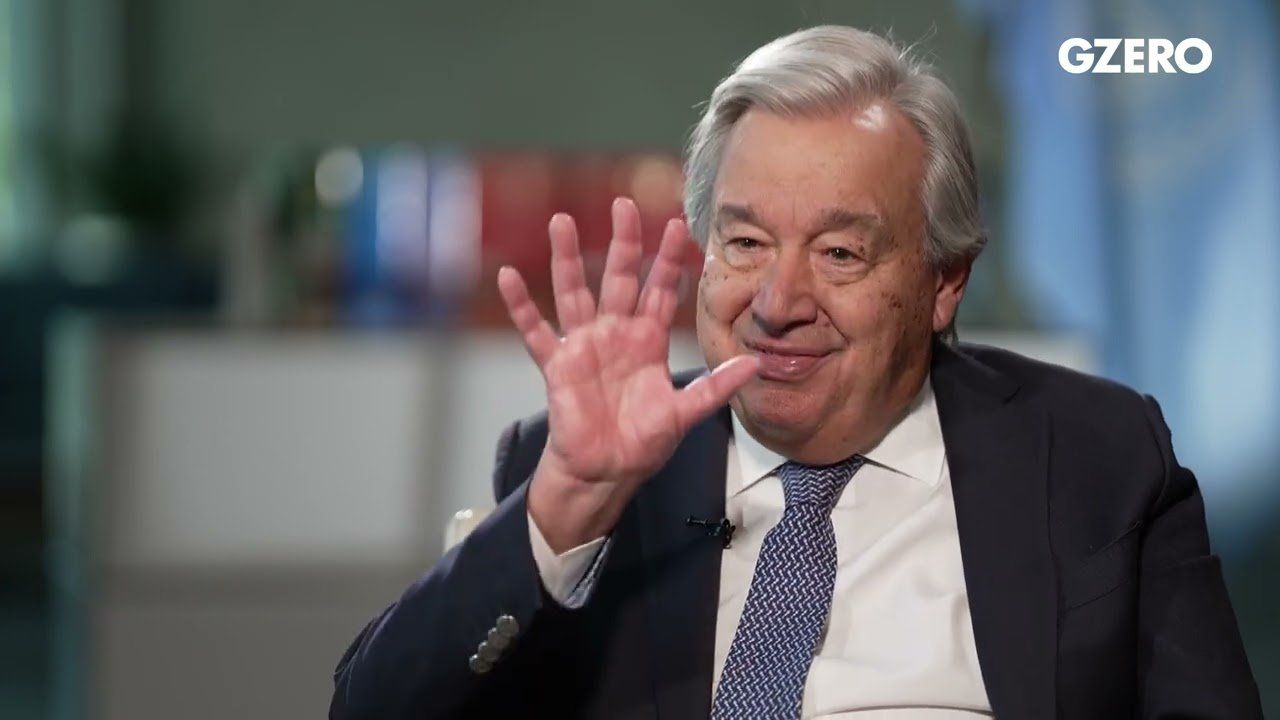GZERO World with Ian Bremmer
Why António Guterres believes the UN should lead on AI: Exclusive interview

- YouTube

United Nations Secretary-General António Guterres warned at last year’s General Assembly, “It’s reform or rupture.” But reforming the UN to meet the economic and political realities of today’s world, one dividing it further into coalitions and blocs, is no easy task. In an exclusive interview for GZERO World, Guterres sat with Ian Bremmer on the sidelines of the UN General Assembly to discuss his vision for the future of the UN during his last term in office. Between ongoing wars in Ukraine and Gaza, the climate crisis threatening the lives of millions, a broken Security Council, and the growing power (and existential risk) of AI, there’s a lot to discuss. Can the UN adapt for the future? Can it show the world multilateralism still has a place amid all the fragmentation? Guterres believes change is always possible as long as there is will and determination.
“The United Nations has one important characteristic: Its legitimacy,” Guterres says, “It's a platform where everybody can be together.”
New digital episodes of GZERO World are released every Monday on YouTube. Don't miss an episode: subscribe to GZERO's YouTube channel and turn on notifications (🔔).
As expected, the Supreme Court struck down the bulk of Donald Trump's sweeping “Liberation Day” tariffs as illegal … and almost nothing changed.
Chris, an Army veteran, started his Walmart journey over 25 years ago as an hourly associate. Today, he manages a Distribution Center and serves as a mentor, helping others navigate their own paths to success. At Walmart, associates have the opportunity to take advantage of the pathways, perks, and pay that come with the job — with or without a college degree. In fact, more than 75% of Walmart management started as hourly associates. Learn more about how over 130,000 associates were promoted into roles of greater responsibility and higher pay in FY25.
Somewhere in the Donbas region, Ukrainian soldier Artem Bondarenko says he hasn’t slept through the night in months as he defends Eastern Ukraine.
In the latest episode of Vladimir Putin and Xi Jinping's hit wellness podcast This Authoritarian Life, we learn how positive communication patterns can break negative cycles in our relationships -- especially our relationships with Iran, Syria, Venezuela, and Cuba. #PUPPETREGIME